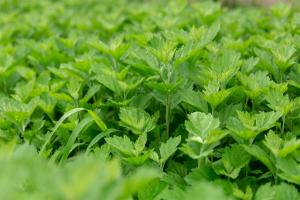Is it Ok to Give Plants Tap Water?
Tap water is readily available to most of us and is typically used for drinking, cooking, and washing. However, when it comes to watering plants, the question arises: Is it ok to give plants tap water? The answer is not a simple yes or no because it depends on various factors. Let's explore them in detail.
The Chemical Composition of Tap Water
Tap water contains a varying mix of chemicals, compounds, and minerals, and it differs according to where it comes from. Depending on your location, tap water may contain chlorine, fluoride, aluminum, copper, lead, arsenic, or other contaminants. While these substances are safe for human consumption at regulated levels, they may not be suitable for plants as they can harm their growth, cause leaf burn, or develop toxicity over time.
Caring for Different Types of Plants
Some plants are more sensitive to chemicals than others. For instance, cacti and succulents are best watered with rainwater or distilled water since tap water can block their ability to absorb nutrients and cause root rot. On the other hand, plants that thrive in alkaline soil may benefit from tap water that contains high levels of calcium and magnesium. It's essential to research your plant's specific needs and adjust your watering routine accordingly.
Filtering or Treating Tap Water
One way to make tap water safer for plants is to filter it. You can use a carbon filter or a reverse osmosis filter, for example, to remove chlorine, chloramine, and other pollutants. Another option is to let the water sit for a few hours to allow the chlorine to evaporate naturally. If you're unsure about the quality of your tap water, you can also treat it with a water conditioner, which neutralizes heavy metals and harmful chemicals. However, keep in mind that these methods can affect the pH level of the water, which may also affect your plants.
Alternatives to Tap Water
If you prefer to avoid tap water altogether, there are several alternatives to consider. Rainwater is an excellent option as it's free from chemicals and contains natural minerals that plants can benefit from. You can also collect water from a dehumidifier, which is suitable for watering houseplants. Alternatively, you can use distilled water, but it's not as eco-friendly or cost-effective. In any case, make sure to store water in a clean container and avoid overwatering your plants, which can lead to root rot.
Conclusion
In summary, whether or not it's ok to give plants tap water depends on several factors, including your location, the type of plant, and the quality of your tap water. While tap water is generally safe for plants, it's essential to research your plant's specific needs and adjust your watering routine accordingly. You can filter or treat tap water to make it safer, or use alternatives like rainwater. With a little care and attention, you can give your plants the hydration they need to thrive.

 how many times do yo...
how many times do yo... how many planted tre...
how many planted tre... how many pine trees ...
how many pine trees ... how many pecan trees...
how many pecan trees... how many plants comp...
how many plants comp... how many plants can ...
how many plants can ... how many plants and ...
how many plants and ... how many pepper plan...
how many pepper plan...































